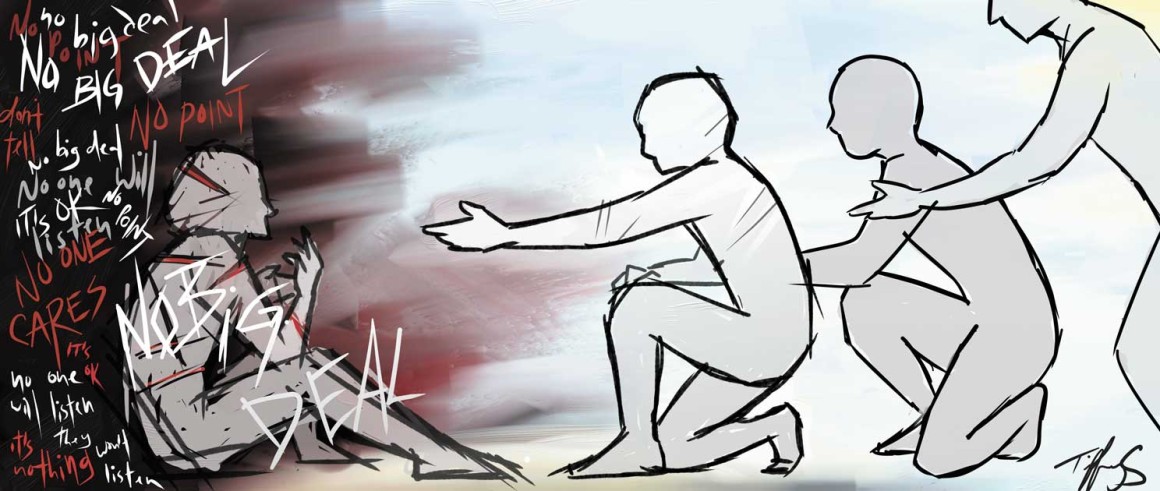
Why rape isn’t reported
By Curtis Wolff, November 6 2014 —
Like most Canadians, I was stunned to hear of the allegations of sexual assault levelled against former CBC host Jian Ghomeshi. A skilled interviewer and seemingly ardent feminist, Ghomeshi and his radio show Q injected some life into the programming of our dutiful but often dull public broadcaster. So far, nine women have accused Ghomeshi of beating and choking them — acts Ghomeshi claims to be consensual.
Following months of investigation by the Toronto Star, the controversy went public at a blazing speed. First came news of Ghomeshi’s parting from the CBC, followed by a Facebook post from Ghomeshi himself. Then the Star published the details of their investigation — all on Oct. 26.
Not so speedy was the launch of a police investigation, which began on Oct. 31. In fact, there is currently no indication that any of the women had made the police aware of Ghomeshi’s actions before the media circus began.
The combined reluctance of the women to go to police and Ghomeshi’s portrayal of one of these women as a “jilted ex-girlfriend” slowed the initial reaction against Ghomeshi. On Twitter, the Calgary Herald’s Licia Corbella called one of the accuser’s claims that she feared taking legal action against such a public and powerful figure “bogus.” Although Corbella later apologized for her remarks, the general public is still confused at how such terrible acts went unreported to police for so long.
We’ve been taught since we were kids to call the police when we are a witness to or the victim of a crime. But how often do we actually follow through?
People who are already marginalized are unlikely to call the police. They either don’t trust law enforcement or believe their concerns won’t be taken seriously.
Women who have suffered from sexual assault may be scared, embarrassed or confused. They may not be comfortable in providing evidence or suffer from acute mental stress. The numbers don’t lie — according to Statistics Canada, only one in 10 sexual assaults are reported. The Ghomeshi situation conforms to these statistics: nine accusations and none brought to the police before last week.
This controversy is a wake-up call for Canadians. We need to do our part in creating an environment where victims of sexual assault feel comfortable coming forward. We’re all responsible for creating a culture where people who are sexually assaulted feel safe confronting their accusers and healing from a violent crime.
Blaming for victims for how they acted or what they wore makes people feel unsafe in situations where they need public support. We need to make sure that our culture is one where perpetrators are blamed and victims are supported. Victims of sexual assault heal from crimes like this in different ways. We need to be there for all of them.
This high-profile case can help bring this discussion to our national consciousness. Victims must know that their claims will be taken seriously, especially when they accuse the powerful and well-liked. Taking the Ghomeshi allegations seriously is a good first step.
